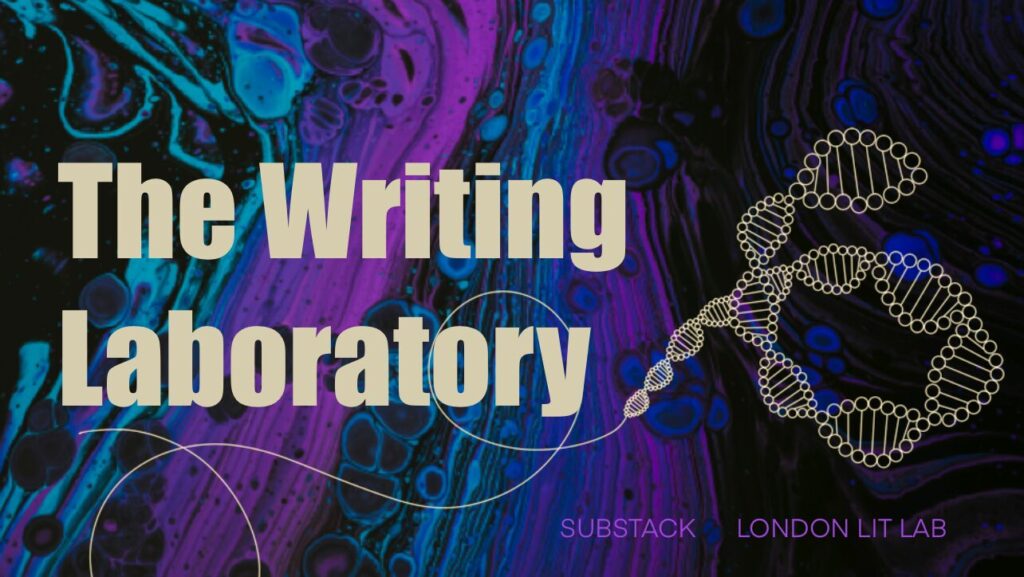Ruby Cowling joined London Lit Lab in 2021, and teaches our online course, Short Story Bootcamp: Fix, Polish, Submit!
What were your writerly beginnings?
I was one of those children who wrote poems all the time, made little books of them, bent over sugar paper with my tongue slightly sticking out, and so on. Some of my teachers were really encouraging and I think that was crucial in building a certain self-belief. I lost that somewhere in my teens – I suppose self-consciousness and judgement just became overwhelming – and then finally in my late twenties I realised there was a big gap in my life that I shouldn’t be ignoring, and I started trying to write again. I didn’t know any writers, or anything about anything, so it was a blind fumble for a long time.
What do you think puts people off reading short stories? How do you think we can get more people reading them?
I have heard people say they feel swizzed if they pick up a book thinking it’s a novel and it turns out to be short stories – and I do understand: when that happens, “chapters” 2 and 3 can be seriously confusing! You put all that effort into getting to know the first few characters and their world, and then they never come back. So it’s important that books are up front about what they are.
I think more people might read them if more money were put behind promoting them, quite simply. But because their sales tend to be relatively low, publishers don’t want to invest marketing budgets in them, and they’re not publicised, resulting in low sales… Otherwise, it would be great to see a return of regular (paid) short story features in non-literary newspapers and magazines, like the “old days”. There’s no reason why not, with online space being practically infinite.
As someone who writes about current issues, why do you think there is a cultural tendency to write/read stories set in the past or far future, rather than the present?
Well, there’s always a worry that current issues won’t be current any more by the time the story gets read, so we tend to flee to a “known past” (though it’s very doubtful, of course, whether a single version of the past can be said to be “known”), or hedge our bets by saying we’re writing about the future. I don’t think you can escape your present moment entirely, though: if you’re writing now, you’re writing *about* now, one way or another. It’s humming along there underneath.
This has been bugging me recently, actually: people saying “1984 is coming true!” and so on – well, yeah, it was true when Orwell wrote it, you know? Writers aren’t prophets. Maybe they reflect back a current situation in a newish way, but they’re just today’s people looking at today, and imaginatively unrolling some of the repercussions of today (which are already all curled up inside “today”!). (Rant over.)
Right now, which of your published short stories feels the most vulnerable to you?
I can’t re-read ‘Biophile’. The protagonist is just so raw, and the style it’s written in, which I can only call “anxious maximalism”, makes me maximally anxious.
How did you end up an associate editor at the Short Fiction journal?
The previous Editor, Tom Vowler, kindly let me on the board of Associate Editors in 2016 after I asked if they needed extra people. The magazine was a print journal at the time but budgets didn’t allow for that to continue, and now it’s online-only, but still publishing brilliant work, and paying both authors and illustrators. Tom stepped down a few years ago and I’m currently its Managing Editor, with a great team working alongside.
What are you currently working on?
I want to write something about the Volkswagen emissions scandal (I mean: tangentially, fictionally) but I’m getting a bit bogged down in the research. Otherwise I have a set of linked stories on the go – if “the go” is a strange, ultra-slow-motion place that looks almost like stasis. Pandemic brain has been a real thing. But as they evolve, it looks increasingly likely that I will need to go to Finland… so if anyone has some funding for that, super.

